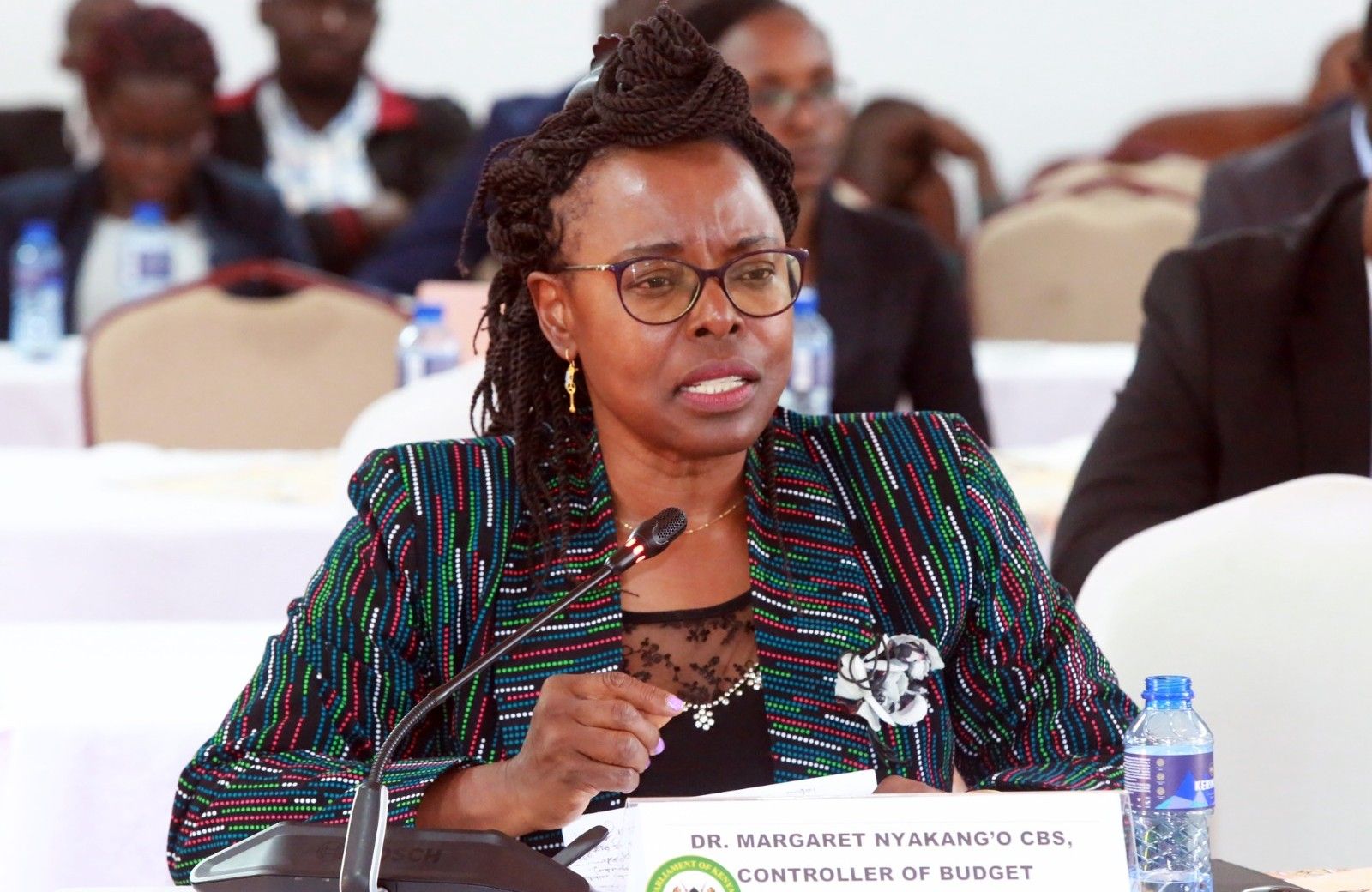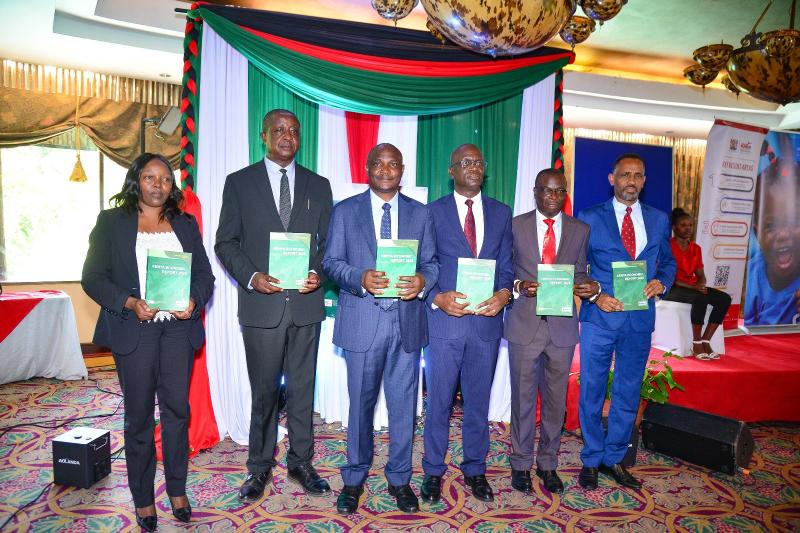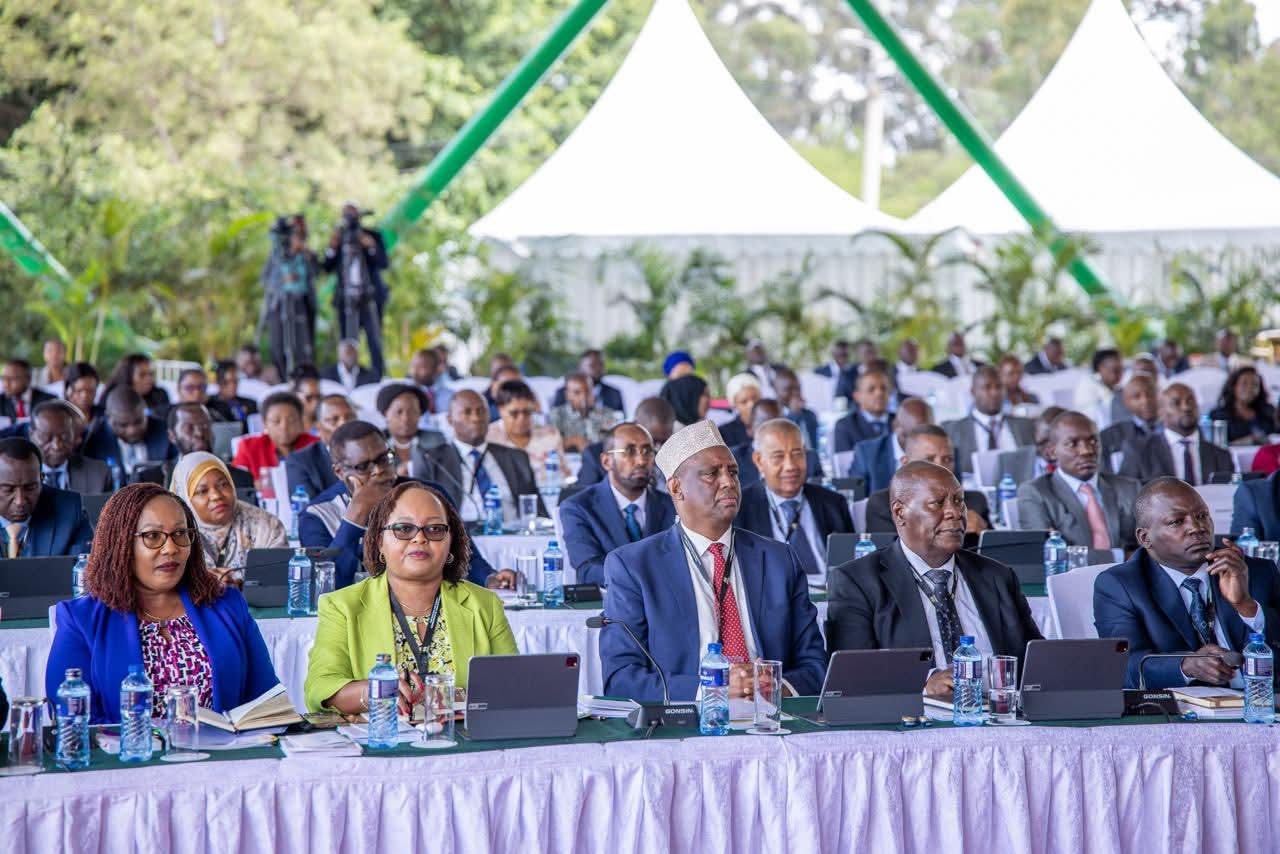NCIC petitions Parliament to rename 10 counties identified by ethnic groups

NCIC said the move aims to eliminate potential discrimination and promote national unity.
The National Cohesion and Integration Commission (NCIC) has announced its plan to petition Parliament to rename 10 counties identified by specific ethnic groups.
The counties include Embu, Samburu, Taita Taveta, West Pokot, Elgeyo Marakwet, Meru, Tharaka Nithi, Nandi, Kisii and Turkana.
More To Read
- New Bill hands NCIC swift powers to curb hate speech, divisive conduct
- Gachagua, governors, and MPs under probe by NCIC for inflammatory statements
- Outgoing NCIC faces scrutiny over last-minute recruitment of 22 staff
- IEBC says poll preparations on track as police move to contain violence in Kasipul, Mbeere North
- Kenya’s criminal gangs trace back to independence era, NCIC says
- NCIC warns of criminal gangs using social media to recruit, mobilise
This move as announced by NCIC chairperson Samuel Kobia on Monday, aims to eliminate potential discrimination and promote national unity.
"NCIC shall advocate for the tabling of a motion in parliament for renaming counties that are identified by specific ethnic groups to eliminate potential discrimination along ethnic lines," he said.
Kobia explained that renaming these counties is part of broader efforts to resolve land and boundary disputes, which have been long-standing sources of conflict in Kenya.
"We estimate that 33 out of the 47 counties have boundary-related conflicts. Given that most of the counties have been created along ethnic lines, boundary conflict easily translates into ethnic conflict," he noted.
Hate speech
Going further, the commission is also actively monitoring hate speech cases on social media and other platforms.
NCIC reported that incidents of hate speech have significantly decreased due to continuous public engagement and initiatives such as the "naming and shaming" wall established by the commission.
However, despite this progress, the commission has flagged 268 cases on social media, including discrimination, incitement, hate speech, misinformation, and disinformation.
In addition to addressing ethnic tensions, the NCIC has launched the "Peace to the City Initiative," aimed at curbing organized armed youth criminal gangs in Mombasa, Kisumu, Nakuru, Eldoret, and Nairobi.
These above cities will host the Vulnerable Youth Summit in July 2024.
Also, the NCIC Chairperson expressed concern over the resurgence of organised criminal gangs, stressing the urgency for decisive action.
"While it is true that this social phenomenon of young people is a result of lack of formal employment, their regrouping and engagement in criminal acts poses a threat to the fragile social cohesion fabric," Kobia noted.
In addition, NCIC warned that if left unchecked, these gangs could significantly threaten peace, unity, stability, and national security.
"Once they gain roots in society, organised criminal gangs attain power capacity to challenge security organs of the state as in Haiti, Colombia, and other states in Central America," Kobia added.
The Commission's efforts follow its 2022 Conflict Hotspot Mapping study, which highlighted the involvement of organized armed youth criminal gangs.
Top Stories Today










































